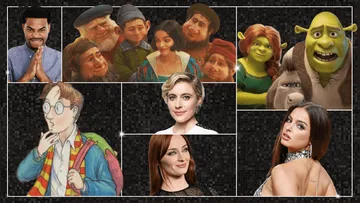In the past few weeks there have been a couple of great articles looking at the future of film and TV making.
The first by Brandon Katz for The Observer looks at how originality in film and TV is dying - and that its viewers’ faults for rewarding blockbuster franchises and known IP TV shows with ticket sales and eyeballs, whilst abandoning newer, more original tales.
That’s not to say that newness cannot still break through - the likes of John Wick and The White Lotus are name checked as good examples. However a slew of misfires by expensive originals and/or first-time adaptations in film and TV speak to a longer-term trend.
According to Nielsen, thirteen of the 30 most-watched titles on streaming in the U.S. in 2024 were based on pre-existing material. When you look at the top 10, seven of them fit this bill, including Netflix’s Bridgerton and Amazon’s Fallout. When you take into account that according to Parrot Analytics only about 12 percent of new shows and movies were based on pre-existing IP between 2020 to 2024, it's not that only non-original content is being produced, it's just that it is what is proving most popular, so therefore is the most reliable for studios.
That’s not to say that we’re getting the same thing over and over, although there may be some over exposure of certain franchises such as Marvel and Star Wars, when looking at the most streamed shows in 2024 there is a good mix of style, tone and genre - from Bridgerton to The Boys, and from The Lincoln Lawyer to Fallout. And when creativity and vision is put first, then projects like Top Gun: Maverick and the new Dune films can give a new lease of life to older IPs.
Even spin-offs of popular IPs such as The Fantastic Beasts movies have struggled to replicate the success of the original Harry Potter series. And so rather than further explore the wire universe the original books are now headed for the prestige TV adaptation.
However with the box office struggling to get back to pre-pandemic levels and the streaming wars continuing apace, could we see a further move to, and regurgitation of, existing IPs to help studios win the war for eyeballs?
One other alternative route for the studios comes courtesy of another great article by Alex Weprin in The Hollywood Reporter. In it they highlight the key takeaway from Deloitte‘s 19th annual digital media trends survey, which asks consumers about their media and entertainment preferences, is that 56% of Gen Zs and 43% of millennials find social media content “more relevant than traditional TV shows and movies,” and roughly half feel a stronger personal connection to social media creators than to TV personalities or actors.
So not only are the studios having to create content to compete with each other, but also for the attention of younger viewers who prefer to engage with original creators on social media platforms. And it's a tough battle, with the giant tech platforms that are stacked with creators catering to every niche and interest possible and available at all times on every phone screen. The real burn? The survey found that these younger consumers also trust creators more, and feel a deeper personal connection to them.
Unsurprisingly the Deloitte survey also found that consumers are increasingly dissatisfied with the value provided by paid streaming services. Given the sheer proliferation of content across more than half a dozen streamers, almost half say that they pay too much for the SVOD services they use. 41% say that the content isn’t worth the price further driving the need for the streamers to create content their subscribers value to stop them cancelling. It also points towards the trend of younger viewers choosing to go for the cheaper ad-supported options available.
It should come as no surprise then that we are hearing of casting directors choosing actors with the highest social media followers for parts - to try and bring their followers to the theatre or TV screen and boost their ratings. Sophie Turner has gone on the record stating that she “she secured a role over a better actress due to her social media following”. And Nichoas Hoult has said that he missed out on franchise films like Top Gun: Maverick and Matt Reeves’ The Batman because he didn’t have the audience that the studios were looking for.
Maybe the answer to all of this is to find digital creators with original ideas to usher in a new era of content?
What do you think? Do IP based film and TV shows really give viewers what they want? Or is it just harder to market brand new ideas to an audience constantly distracted by what’s on their phones?
